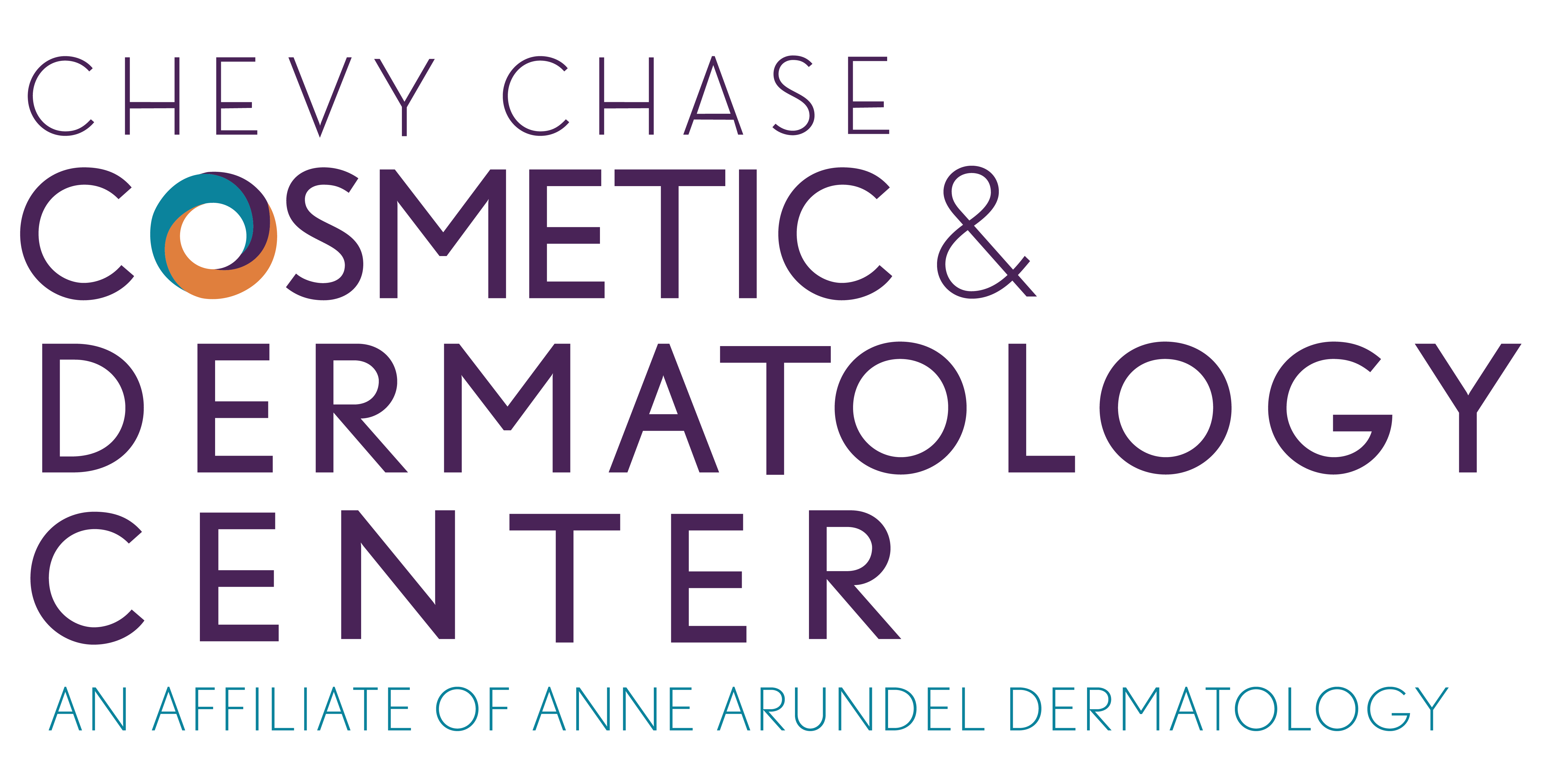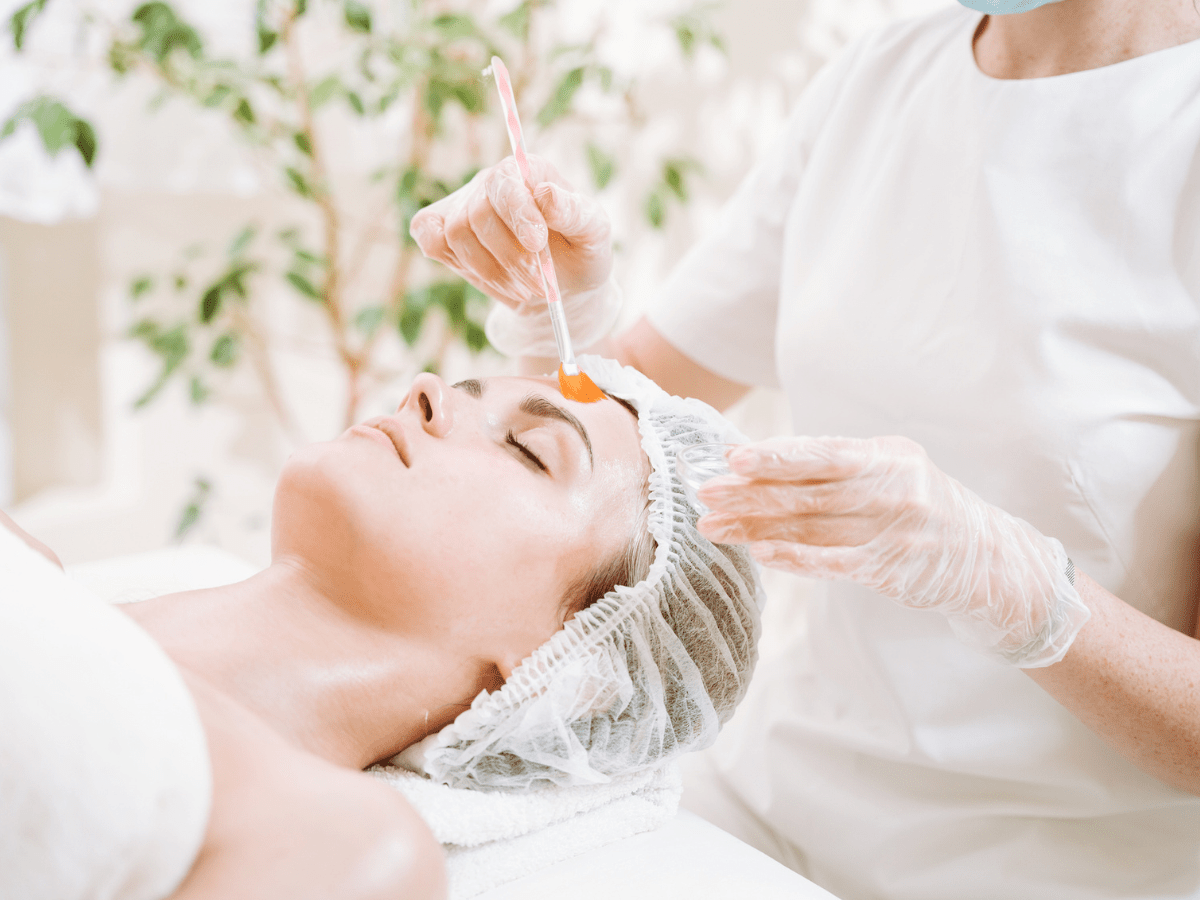What are Chemical Peels?
Chemical Peels Help Reverse Signs of Aging Skin
A chemical peel is ideal for treating and improving the effects of aging, photo-damaged skin, fine lines and wrinkles, pigmentation abnormalities, superficial scarring, acne, and melasma. This is a minimally invasive step to achieve healthy-looking skin. For some, a more advanced method would be BroadBand Light treatment. The Chevy Chase Cosmetic & Dermatology Center offers all three options, and your practitioner will advise you on the best method to improve your skin tone and texture. Come in for a consultation to see which treatment is best for you. Call 240-482-2555 in Chevy Chase, Maryland for an appointment today!
Types of Chemical Peels
 Glytone
Glytone VI Peel
VI Peel SkinMedica
SkinMedica
Frequently Asked Questions
How much do chemical peels cost?
Vitalize Chemical Peel: $185 per treatment
SkinCeutical Chemical Peel: $185
per treatment
What are realistic expectations?
- Gradually corrects sun damaged skin
- Smooths fine wrinkles
- Reduces mild scarring
- Smooths rough texture
- Improves irregular discoloration
- Improves acne conditions
What are unrealistic expectations?
- Cannot remove or reduce broken blood vessels
- Cannot improve deep wrinkles
- It is impossible to truly change pore diameter. However, after the treatment, the pores will appear less pronounced.
Pre-Chemical Peel Instructions
- Avoid sun exposure, i.e. tanning or burning, one week prior to treatment.
- Discontinue the use of any Retinol creams, AHA’s, Glycolic Acid, Vitamin C or Bleaching creams one week prior to treatment
How do chemical peels rejuvenate the skin?
Chemical peels produce partial thickness injury to the skin, the depth of which is determined by the chemical agents. Following the trauma to the skin, the wound healing process reorients the new skin connective tissue. Collagen remodeling is the main reason chemical peels decrease sun damage and reduce wrinkles. Deep dermal regeneration can take weeks to months. The epidermis, however, heals in a few days giving the skin an improved appearance, more even skin color, smoother texture and overall, a healthier glow.
How long will the effect of the chemical peel last?
Aging skin is a chronic natural phenomenon. A single peel can reverse some of the clinical and histological signs of aging, but once the skin has healed from the peel, the aging process starts again. Therefore, a daily program specifically designed products that can reverse the signs of aging is necessary to maintain long-term improvement.
What can be expected after a chemical peel?
Most patients leave the office with their skin looking healthy and fresh. Any redness or discoloration can easily be covered with makeup and most activities can be resumed right away. Within 48 ours a mild flaking will occur, which can be controlled with moisturizers.
Is it safe to have a chemical peel on a regular basis?
Multiple treatments may be required to achieve desired results. Subsequent peels may be repeated every 3 to 4 weeks. There is no limit to the number of peel a person ca receive as long as improvement continues. The effect is cumulative with time and enhanced with daily regimen products.
How long should a chemical peel remain on the skin before washing?
SkinMedica, the makers of Vitalize Peel, recommends washing the face in the evening. If the patient chooses to wash the face sooner, they should wait 1 to 2 hours until the yellow tinge completely disappears.
Can a chemical peel be performed on the neck and décolletage chest area?
Chemical peels can be used on the neck and chest to improve fine wrinkling and blotchy discoloration including brown age spots. One peel is usually not sufficient enough to give the best results. Therefore, non-facial peels are usually repeated several times to achieve best results. It is important to understand that non-facial areas generally do not heal as well as the face due to significantly less amount of hair follicles and sebaceous glands. You might see less peeling on non-facial areas than on the face, but it will still notice an improvement in texture, smoothness, and color of sun-damaged skin.
What makes a chemical peel helpful in the management of acne?
One of the active ingredients in Vitalize Peel is salicylic acid that has been used for several decades to treat acne. Salicylic acid is a comedolytic agent. This agent is lipid soluble and therefore, it penetrates through the sebum of acne-prone skin better than water-soluble acids. Also, salicylic acid has anti-inflammatory properties since it is related to aspirin. In addition, Retinoic acid inhibits sebum production and reduces hyperkeratinization. It helps to unclog the pores and prevent the formation of new papules. Superficial exfoliation produced by Vitalize Peel also helps to improve post-inflammatory hyperpigmentation caused by acne lesions.
How long after receiving a chemical peel can one be exposed to the sun?
Sun avoidance during the recovery period is critical. After the peeling is complete, one can resume regular activities, but daily use of a broad-spectrum sunscreen with SPF 30 or higher is imperative for maintaining healthy skin.
Visit Chevy Chase Cosmetic Dermatology Center
Our team provides thoughtful, expert care for all your skin health needs. We are proud to offer the most advanced general and cosmetic dermatology services in the greater Washington D.C. area. Your best skin awaits.



